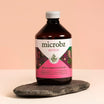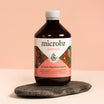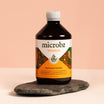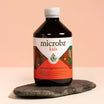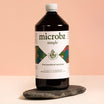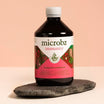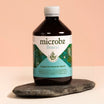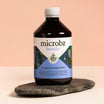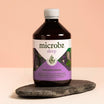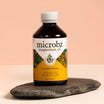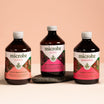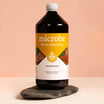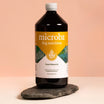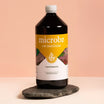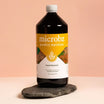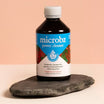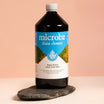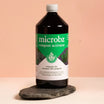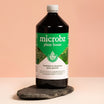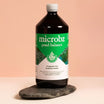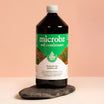Irritable Bowel Syndrome (IBS) is a common digestive disorder, in fact it affects millions of people worldwide. The frustrating thing for sufferers is that the exact cause of IBS is unknown.
That said, there is growing evidence to suggest that gut bacteria and gut health play a significant role in its development and management. People who live with IBS tend to develop ways to recognise triggers, and manage their condition according to their own unique experience.
Did you know that April is IBS Awareness Month in the UK?
It's a month dedicated to spreading the word about Irritable Bowel Syndrome and how it affects people. The aim is to get more people talking about IBS, increase access to care and support for those who need it, and encourage research into new treatments.
We also think it's a great opportunity to widen the discussion to nutrition, health and wellbeing in general because, as we know, when it comes to our health, nothing is isolated but rather we are complex and interwoven creatures. Illness and conditions often stem from a web of causes, some you might not necessarily even consider, such as nutrition, exercise, environment, weather, social life, stress levels and your relationships.
There is a link between your gut health and how that might affect IBS.
Download this IBS booklet for an overview of the connection. IBS & your gut health The gut microbiome is a complex community of trillions of microorganisms that live in the gastrointestinal tract.
These microorganisms include bacteria, viruses, fungi, and other microorganisms that play a crucial role in maintaining the health of the gut and the body as a whole. When the balance of these microorganisms is disrupted, it can lead to various health problems, including IBS.
Several studies have shown that people with IBS have an altered gut microbiome. For example, some studies have found that people with IBS have lower levels of beneficial bacteria, such as Bifidobacterium and Lactobacillus, and higher levels of harmful bacteria, such as Enterobacteriaceae and Clostridium difficile.
These changes in the gut microbiome can lead to a range of symptoms, including abdominal pain, bloating, diarrhea, and constipation, which are characteristic of IBS.
The exact mechanisms behind these symptoms are not fully understood, but it is thought that they may be related to the microbes producing certain chemicals. One of the key ways in which gut bacteria influence gut health and IBS is through their role in the immune system.
The gut microbiome plays a crucial role in training the immune system to recognize and respond appropriately to harmful pathogens while tolerating harmless bacteria and food antigens. When the balance of the gut microbiome is disrupted, it can lead to an overactive immune response, which can trigger inflammation and damage to the gut lining.
Another way in which gut bacteria influence gut health and IBS is through their role in digestion and nutrient absorption. The gut microbiome helps break down complex carbohydrates and fibres that the body cannot digest on its own, producing short-chain fatty acids (SCFAs) which are really important for gut health.
These SCFAs provide energy to the cells of the gut lining, help maintain the integrity of the gut barrier, and play a role in regulating inflammation. When the gut microbiome is disrupted, it can lead to a reduction in SCFA production, which can lead to gut inflammation which can allow harmful substances to enter the bloodstream.
So what can we do to relieve IBS symptoms?
This varies from individual to individual, but it essentially boils down to leading a natural healthy lifestyle, which improves overall (including gut) health.
Focusing on nutrition and lifestyle changes is a really good place to start, eating a variety of fresh vegetables and natural produce. A low FODMAP diet has been shown to be effective in reducing symptoms of IBS by limiting the intake of fermentable carbohydrates that can cause bloating and gas.
Probiotics, such as Lactobacillus and Bifidobacterium, have also been shown to improve symptoms of IBS by restoring the balance of gut bacteria and reducing inflammation. Here at microbz, our probiotic supplements are 100% natural, grown from microbes harvested from the soil and contain 15 different strains of bacteria to boost the helpful microbes, delivering them directly into your digestive system.
Let microbz look after your gut, so your gut can look after you.


